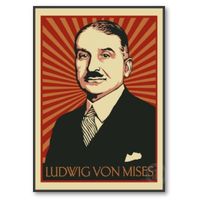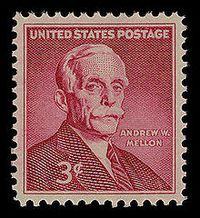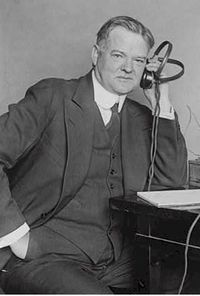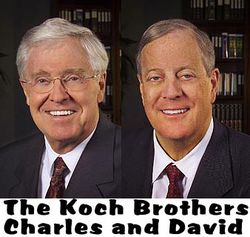Think of this as Volume 17, Number 14 of A-Clue.com, the online newsletter I've written since 1997. Enjoy.
 I know that liberal economists like
I know that liberal economists like
Paul Krugman want to dismiss David Stockman's latest book, The Great
Deformation as the work of a “cranky old man”
But it's not. It's the finest form of
political jiu jitsu. And it's dangerous stuff, very dangerous.
Stockman, who was briefly a Reagan
budget director, and who was then made wealthy by Wall Street, reveals here that his heart is in the Austrian
economics brought to this country by followers of Ludwig von Mises.
 The Austrians thought they could deduce
The Austrians thought they could deduce
how economies run, and create policy from those deductions that would
always be right. It is a reductio ad absurdum,
a reduction to absurdity.
It cares nothing for data, and like all such exercises yields an ideology. This ideology destroyed Europe's economy in the
1920s, and the Austrians were chased out of Europe by Hitler, then
welcomed to America under the aegis of big money Republicans to act
as a counterweight to FDR.
The origins of a politics which equates
FDR's New Deal with Hitler is Austrian economics. The policy of
Republicans aimed at overthrowing the New Deal and all social welfare
legislation is Austrian economics. Another Austrian political thinker
is Amity Schlaes, whose model of proper economic stewardship turns
out to be Calvin Coolidge.
What's wrong with Austrian economics is
simple. They don't understand the nature of money.
Money is a medium
for exchange, whose supply should reflect demand for it. Austrians
think of it as a medium of value, whose supply should be restricted.

have the benefit of keeping money out of the hands of the mass of
people, and comfortably in the private banks of the very wealthy. As
a medium of value, it's too important to be left to the huddled
masses. It's like nitroglycerin, dangerous stuff, and must be
husbanded. That's what Coolidge was doing under his Secretary of the
Treasury, Andrew Mellon (right), and Mellon brought us the Great Depression.
The reason Schlaes wants to resurrect Coolidge is to ignore Mellon,
who stayed on under Coolidge's successor, Herbert Hoover (below).
As a medium of exchange, money is
fungible. When money is lost, when it disappears, it needs to be
replaced. When there is too much supply of stuff, money creates demand for it.
Hitler's command economy delivered unlimited demand for the
industrial supply of his time, in the form of the armaments of war,
and FDR ultimately was forced to do the same, ignoring deficits
through Lend Lease and other programs leading up to World War II. Austrian economics was thus shelved, until it would prove useful again.

of David Stockman and Amity Schlaes, is to re-set economic thinking
back to the 1920s, a sort of economic Eden in which things worked,
deficits were modest, and government was unnecessary.
When a flood
devastated Louisiana in 1927 Coolidge didn't spur the government to
act. Instead, as Randy Newman writes in his famous song he came down in a railroad train, “with a little fat man with a
notepad in his hand.” The fat man was Hoover, who would lead
private efforts to rebuild. All Coolidge could say was “isn't it a
shame, what the river has done to this poor cracker's land.”
In Newman's song, government is
uncaring, unfeeling, and impotent against the rising tide of nature.
It's Austrian economics in action.
What Stockman's book does, what
Schlaes' hagiography of Coolidge does, is give conservatives the
chance to renounce everything they have done since the Great
Depression. It lets them distance themselves not only from George W.
Bush, but from Ronald Reagan, and from a whole generation of
Republicans who said “yeah but” to Democrats' efforts against
economic want and need.
It's all based on a false idea, a false
ideology, but as Ed Rogers, who co-founded Haley Barbour's old
lobbying firm writes, Stockman is “useful.” Yes, he's extremely useful. John Meroney of the right-wing Claremont
Institute is also out with an article praising Stockman to the skies.

about the modern conservative movement. Its ideology is absolutely
rigid, and can never fail. It can only be failed by weak actors. I
had wondered for years why this seemed to be so, and I think I
finally figured it out.
It's because Austrian economics has the
same basis as Marxism. Austrian economics sounds like the opposite of
Marxism, but it proceeds from the same mistake, the idea that you can
take all economic actions, put them into a jar, and deduce what to do
from pure reason. The Austrians, like Marx, were 19th
century thinkers who had no conception of the scientific method, a
process of constant experimentation in which what works is shown to
us by our mistakes, in which mistakes are actually part of the
process.
Ideologies can't make mistakes. Marxism
couldn't make mistakes. Austrians can't make mistakes. Only men can
make mistakes. When they make mistakes, ideologues disown them for
failing the ideology. Thus they never learn from reality.

ideology, of any sort, when applied by anyone to the study of
economics or anything else. It is profoundly unscientific. It is, in
fact, anti-scientific. Which makes it all of a piece with climate
change denialism, with the denial of evolution, and with all the
other absurdities that make up the modern conservative movement.
Just remember that the movement is not
what's important here. What's important here is who pulls the strings
on the movement. Money pulls the strings. And in 2013 that means oil money. Koch money.
The
most important thing liberals can do today is, like Toto, to pull the
curtain away from all this and show that the Great and Powerful Oz is
nothing but a show put on by fearful, greedy, oil men.










